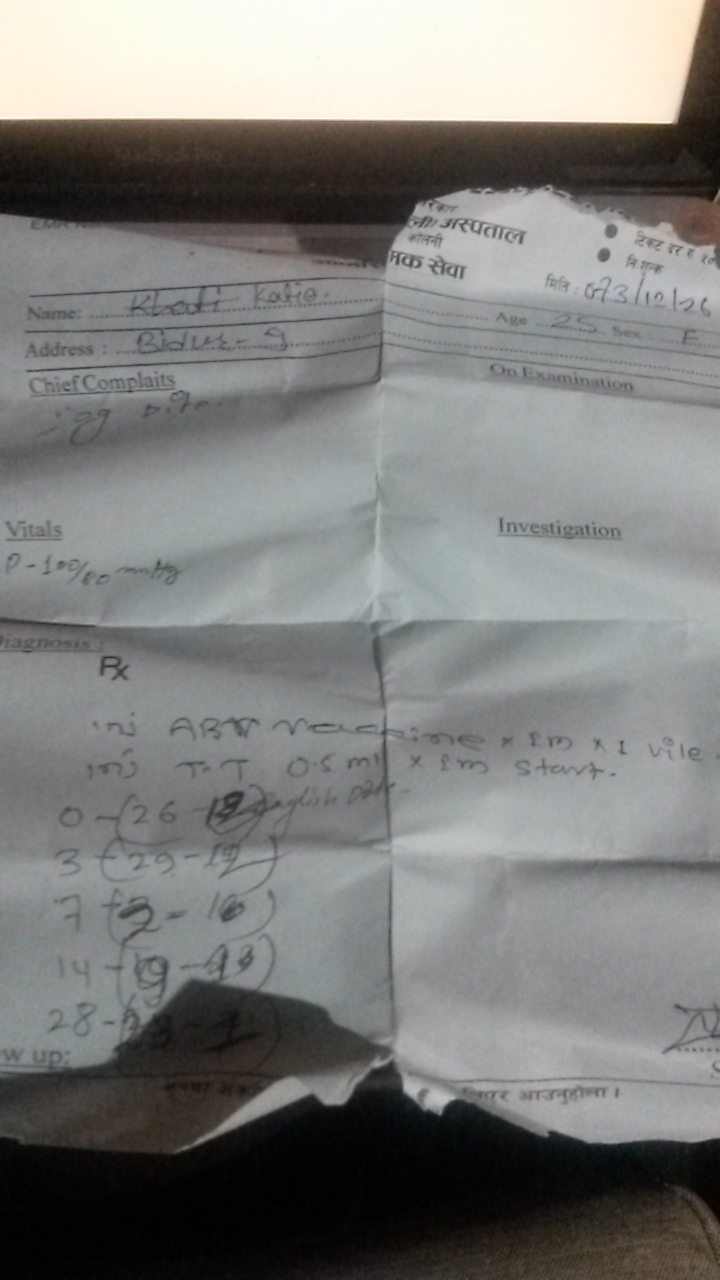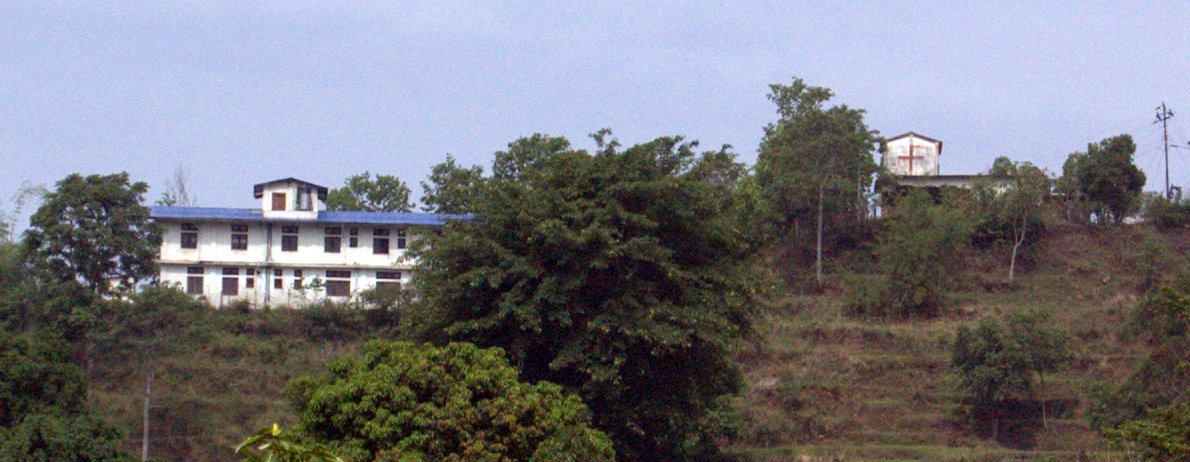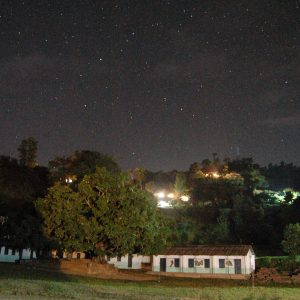In this week’s edition of “Katie does extreme things to entertain her friends,” I visit three hospitals in a 5 day period for you. You’re welcome. Let’s begin.
Part one: the Health Post
The first one was the local health post. It’s a beautiful building- the original health post was destroyed in the 2015 earthquake, and the Red Cross recently built a shiny new one. However, it doesn’t have any water in the taps, and I think they missed a big opportunity to install rainwater collectors and have the medical personnel lead the hand-washing movement for the region.
To give you some context, I showed up at this health post after the dog bite bleeding profusely. The door was open, but the screen was locked. I banged on the screen and yell “emergency!” (in the local language) but no one answered for a solid two minutes. As I started heading out, a nurse finally opened the door. I pointed to my wounds and explained the situation. She let me in, but told me the doctor was sitting on the roof and gave no further explanation. I didn’t really know how to respond, so I tried to head up to the roof, but she stopped me and led me to an examination room. She put on rubber gloves that had holes in them and that appeared slightly dirty, so l insisted l bandage myself up, and I do so. After the bleeding is under control, I asked for the rabies vaccine, which she said they didn’t have it. The nearest hospital that has it was three hours away, she told me, because it’s the only hospital in the region that has access to routine electricity, and the rabies vaccine has to be kept at a very specific temperature.
I walked to my house, needing to talk to my host family and figure out how I was going to get to the hospital. When I arrived, they informed me that the doctor just called them because he had finally come down from the roof. My patience was running a little thin, I’ll admit. I was not pleased to have to walk back up a very steep hill just because he was finished enjoying the mountain scenery on the roof.
When I got back to the health post, there was a woman I believe was in labor waiting outside, but the doctor was waiting for me. He examined my wounds and said I should wait a week and if the dog died, then I should get the rabies vaccine. I argued with him (respectfully) sharing the WHO’s recommendations on rabies, which requires treatment on Day 0, and then I asked him to rebandage my wounds (he had removed the bandages to examine the bites, and I had just about bled through the wounds anyway). He told me that wounds need to left open so bacteria doesn’t grow. He insisted that bacteria can’t grow in light, so by exposing the wounds to light, it makes sure there is no bacteria in there. I could see I wasn’t getting anywhere with that line of discussion, so I left the health post with a trail of blood back to my room where I self-bandaged them, using about half of my first-aid kit at once.
Part 2: the State Hospital
The second is the hospital for the region of the country. Each region (there are five) has a hospital that can treat minor conditions. I’d guess they can perform most of the same functions as an urgent care center in the US. When I arrived on the back of my new friend’s motorcycle at the hospital (3 hours away), the entrance/emergency room was filled with people experiencing life-threatening ordeals. There was a man with a massive tumor on his side groaning in agony, and many sickly people were sitting on the floor because there weren’t any seats available.
I wasn’t obviously injured at all. Not to mention, my needs (a vaccine) were clearly non-life threatening. Nonetheless, as soon as I walked in, all the doctors and nurses in the entire hospital came over to attend to me (obviously, I don’t condone this). The only place to sit was in the maternity ward, so I ended up on a cot next to women in labor while they gave me the vaccine. The guidance about where to give the rabies vaccine recently changed from the butt to the arm, and these doctors did know that, which I was impressed about. The vaccine has to be kept refrigerated with only a 2*C margin of error, and I was concerned that during power outages it wasn’t kept at the required temperature. They assured me it was, but I still have a few doubts. They also rebandaged my wound, which had already bled through all of my materials. I thanked them and went on my way.
 I’m uploading my medical report from the hospital, and I have nothing to redact on it. My name is wrong (and only my nickname), my age is wrong, the date I was there is wrong, they never took my blood pressure and just wrote down that number, my address is wrong, and the dates that I needed the follow-up shots were written incorrectly three times (and those dates are essential). Luckily, all medical services are free in this country (way to go, Nepal!), so I don’t have to worry about the joy trying to get reimbursed from my health insurance with this form.
I’m uploading my medical report from the hospital, and I have nothing to redact on it. My name is wrong (and only my nickname), my age is wrong, the date I was there is wrong, they never took my blood pressure and just wrote down that number, my address is wrong, and the dates that I needed the follow-up shots were written incorrectly three times (and those dates are essential). Luckily, all medical services are free in this country (way to go, Nepal!), so I don’t have to worry about the joy trying to get reimbursed from my health insurance with this form.
Part 3: the expat hospital
My final hospital in the 5-day period was a famous expat hospital in a big city. I ended up staying for three days and two nights due to a really bad infection. It was a huge comfort to know that they had generators, everything was clean, and the doctors knew their stuff. One of my doctors was actually on vacation in Nepal from her home in Colorado and apparently decided to work at the hospital for a few weeks to get exposure to travel medicine. A friend’s doctor at the Cleveland Clinic had also worked at the hospital. Their knowledge of travel medicine really is quite impressive, and there’s no where I’d rather be sick in this country than at that hospital.
The one complaint I have was that they put my IV in wrong, so I was in constant pain the entire time in my arm. I kept trying to get them to move it to a different vein, but the doctor said the pain was due to my small veins. When they took it out, though, it was clear the needle had been bent and had not been in properly. I asked to be released sooner than I should’ve been because the pain in my arm from the IV made it so I couldn’t sleep.
This hospital did come with an expat price tag, however. Whereas my other hospitals had been free, this one charged only a little less per night than a stay in a US hospital. As we speak, my two health insurance plans are battling it out over who gets to pay that bill. It was clearly a thrilling week of hospital stays. Stay tuned for next week’s episode to see if I can top all of these awesome medical adventures.
Comments are closed.




1 Comment
Amazing! Hope you are feeling better now.